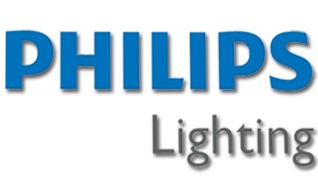Philips Lighting announced that in 2017 it reduced its carbon footprint by 20% to 325 kilotonnes CO2 and increased its use of electricity from renewable sources from 67% to 80%. These results highlight the progress the company is making on its Brighter Lives, Better World sustainability program, which was launched in 2016.
 |
|
(Image: Philips Lighting) |
"Sustainability lies at the heart of Philips Lighting's business and I'm therefore very proud that the increase in our use of renewable energy in combination with carbon offsetting has reduced our company's carbon footprint by 20%," said Nicola Kimm, Head of Sustainability at Philips Lighting. "This is another big step toward achieving the ambitious targets we set for 2020 in our Brighter Lives, Better World program."
Through its dedicated sustainability program, the company aims to achieve carbon neutrality by 2020, to use 100% of its electricity from renewable sources and to generate 80% of its revenues from sustainable products, systems and services. In 2017, 77% of Philips Lighting's revenues were attributable to sustainable products, systems, and services.1
Philips Lighting also reduced the amount of waste materials delivered to landfill by 26% compared with 2016 and continued a sustainability drive across its portfolio - for example by investing 83% of its R&D spend in sustainable innovation. One result of this was the TrueForce LED range, which supports the transition from High Intensity Discharge (HID) lamps to LED technology. By replacing these HID lamps with the TrueForce LED range, electricity used for lighting can be reduced by up to 75%.
By the end of 2017, Philips Lighting had delivered 1.2 billion LED lamps and luminaires since it joined the Global Lighting Challenge at the beginning of 2015, effectively avoiding approximately 30,000 kilotonnes of CO2 being emitted to the atmosphere.2 This is part of the company's commitment to deliver 2 billion LED lamps and luminaires by 2020 and strongly supports its sustainability program.
In 2017, Philips Lighting received recognition for its efforts by being named the Industry Leader in the Electrical Components and Equipment category of the Dow Jones Sustainability Index. In addition, Philips Lighting was part of CDP's 2017 'Climate A list' for reducing its own environmental impact and was included in the 'Supply Chain A list'.





 CN
TW
EN
CN
TW
EN






